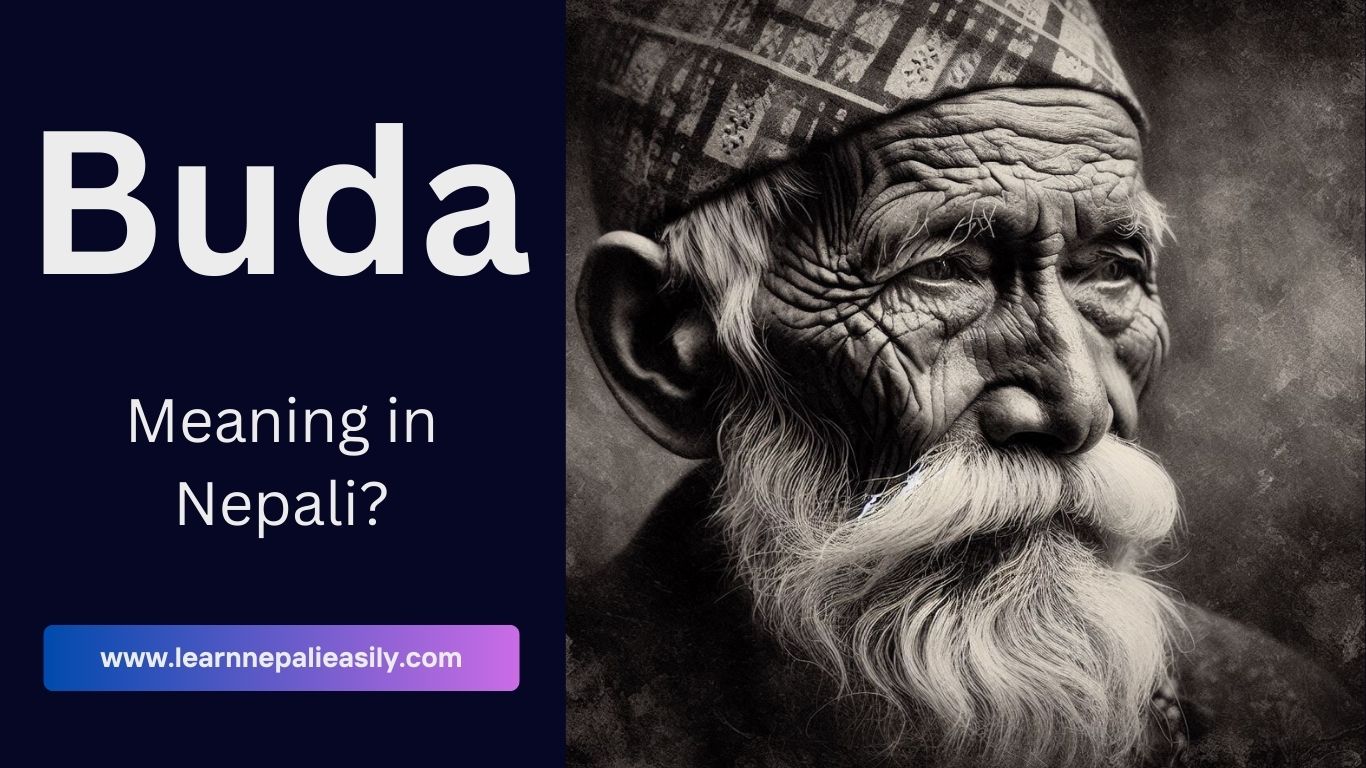The word “Buda” in Nepali holds a unique place in both the language and culture. Though it literally translates to “old man” in English, “Buda” is commonly used with a broader range of meanings and contexts in Nepali society. This article explores the meanings and usage of “Buda” in Nepali, along with examples.
Literal Meaning of “Buda” in Nepali
At its most basic level, “Buda” translates to “old man.” Traditionally, it refers to a male elder, someone of advanced age. Referring to someone as “Buda” can be an informal way of addressing them.
“Buda” in Friendly Banter
Among friends, “Buda” can also be used in a teasing manner. Friends may jokingly refer to each other’s partners (husband) as “Buda” as a way to make fun or show a playful bond. This use of “Buda” is quite common in social gatherings and is generally understood to be lighthearted.
Husband = buda, shreeman, pati, logne
Here, “Buda” is used humorously, showing that language can add layers of warmth and familiarity to social interactions.
Affectionate Use (Partner)
English: My old man is my best friend.
Nepali: Mero buda mero sabai bhanda milne saathi ho. (मेरो बूढा मेरो सबैभन्दा मिल्ने साथी हो।)
Playful Use (Teasing)
English: Looks like your old man is here to pick you up!
Nepali: Timro buda timilai lina aaisakyo jasto cha! (तिम्रो बूढा तिमीलाई लिन आइसक्यो जस्तो छ!)
Examples of “Buda” in Sentences
English: In our village, everyone respects the old man for his wisdom.
Nepali: Hamro gauma sabai jana budalai gyanko lagi adar garchan. (हाम्रो गाउँमा सबै जना बूढालाई ज्ञानको लागि आदर गर्छन्।)
English: I enjoy spending time with my ‘buda’ because he always makes me laugh.”
Nepali: Ma mero buda sanga samaya bitauna man parauchu kina bhane usale malai sadhai hasaucha. (म मेरो बूढासँग समय बिताउन मनपराउँछु किनभने उसले मलाई सधैं हसाउँछ।)
These examples illustrate how versatile “Buda” is as a word, allowing it to be used in formal, affectionate, and humorous contexts.
Cultural Significance of “Buda”
Nepali culture places great importance on family and community, with elders holding a cherished role. It can convey warmth, affection, and sometimes playful banter, depending on how it’s used.
Conclusion
The term “Buda” in Nepali is a multi-dimensional word that reflects the values and nuances of Nepali culture. For learners of the Nepali language, understanding words like “Buda” helps bridge cultural divides and allows for deeper connections with native speakers.

